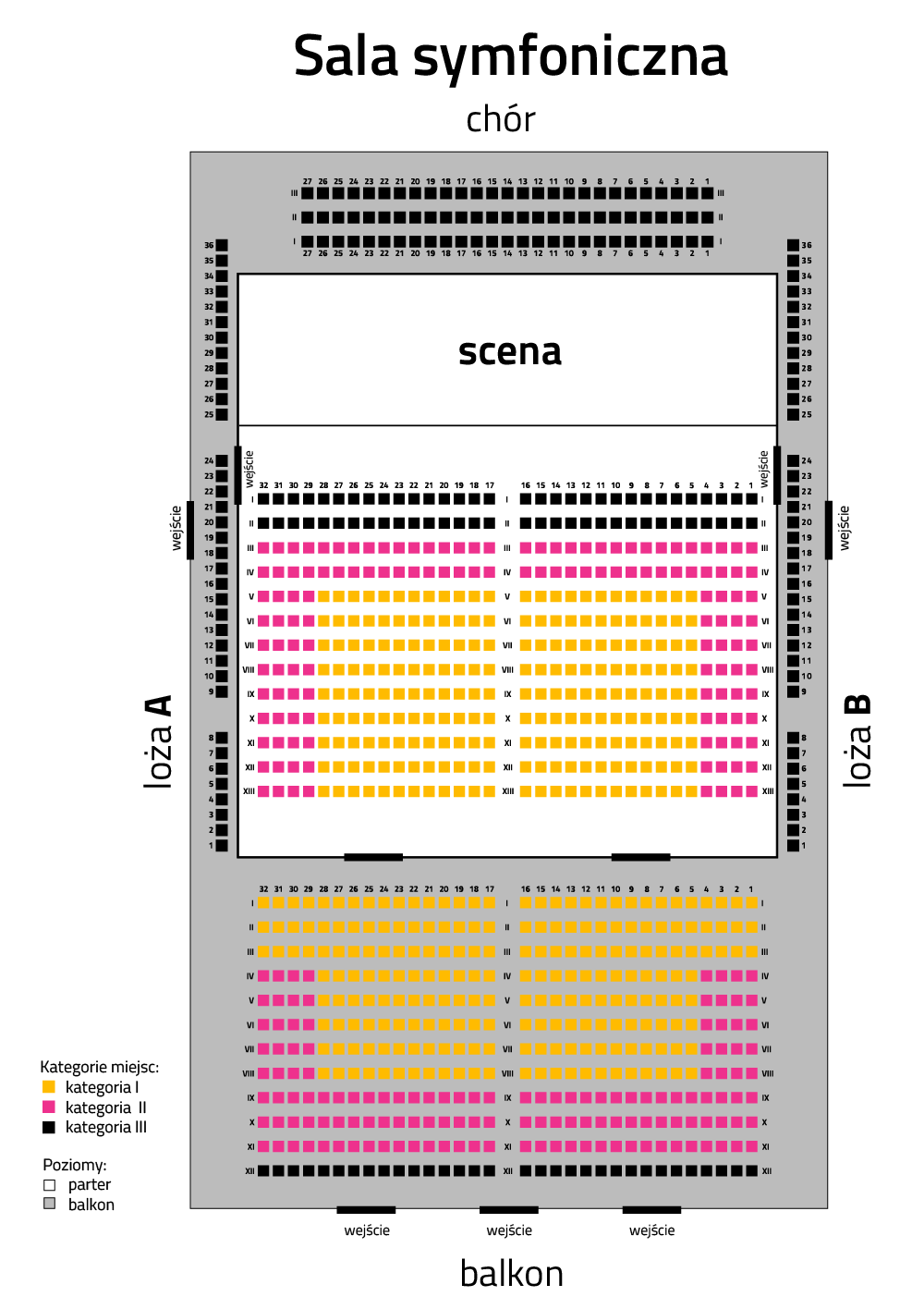They seemed to be quite different. Karol Szymanowski had the air of the man of the world, while Anton Bruckner was considered a provincial. The creator of "Harnasie" was confident of his value, the German symphony composer being famous for many remixes of his own works. And what does their music say about the musicians? Both were brave – sometimes even too avant-garde for their time.
Critics of Karol Szymanowski's music swung between adoration and rejection, especially in the early most avant-garde Berlin years when the artist wrote pieces full of new sounds. Composer Apolinary Szeluto reported the state of Szymanowski's views of that time in this way (the beginning of the 20th century): "Karol Szymanowski told me that it is necessary to compose first of all, unprecedented sound associations without considering whether this is understandable to the public, art for the sake of art not for people, and at the same time it is vital to compose only sporadically, when inspiration comes. " In Polish circles the realization of his view on art was met with a lack of understanding. Duh! The presence of Western music trends was considered ideologically incorrect. After the Second World War, in the era of socialist musical realism, only music from Szymanowski's "national" period was accepted (rejecting mysticism, orientalism, and fantasy of his earlier compositions).
The score of the Second Violin Concerto (1933) comes from this “national” period. Since the 1920s the artist had used elements of Polish folklore, e.g. from Podhale and Kurpie. Hence, the enthusiasts of Violin Concerto No. 1, which is full of impressionism, exotics and eroticism, should be informed that it is piece number two and is an expression of completely different ideas. There are musical notes from Podhale, but rather than the sound of experiments we hear more tonal phrases. The concerto, like the first, was co-authored with the great violinist Paweł Kochański, a consultant in many of the violin works of the composer (premiered on October 6, 1933 at the Warsaw Philharmonic). The solo part will be performed by Rune Bergmann’s fellow countrywoman, Norwegian violinist Eldbjørg Hemsing, whose fame has extended far beyond Scandinavian circles (Wigmore Hall, Verbier Festival, AlpenKlassik in Germany).
Most of the professional life of the German composer Anton Bruckner (1824-1896) was marked by misunderstandings and disapproval of his music. Some considered him conservative, too easily influenced by other composers, while others regarded him as a radical creator who had built his original style on the basis of the past. Circumstances around the performances of early symphonies are a sign of the wonderful times when musical pieces caused scandals, ending with the ostentatious departure of the audience, a rebellion by the orchestra, etc. (brings a tear to one’s eye...). Let us recall the circumstances around the performance of Symphony No. 3 "Wagner symphony” on December 16, 1877 in the great hall of the Viennese Musikverein. Just before the great premiere, conductor Johann von Herbeck (who had reviewed the work after three rejections by the Philharmonic management) died. The composer himself had to stand on the conductor’s podium, and it was necessary to know that he was not valued as a conductor. The rebellious attitude of the orchestra and the general poor co-operation made the audience leave the hall during the performance. The critic Eduard Hanslick later penned a critique that completed the work of destruction.
Bruckner had to wait many years to have his symphonic pieces recognized. The day of the great triumph was March 10, 1885, when Symphony No.7 was performed in Munich under the baton of Hermann Levie. The reviewer of "Berliner Tageblatt" wrote: "Bruckner has seduced us so much that when the last chord of this great work came out, we asked in astonishment: how could he have so long been a mystery to us?" The symphony consists of four monumental parts, and is filled with lyricism and seriousness (the second part of the work is reminiscent of the famous Adagietto of Mahler’s Symphony No. 5). It can be concluded, therefore, that in the case of Szymanowski and Bruckner, only the coming generations will recognize the fullness of these works. Well, "Worldly fame is but a breath of wind that blows now this way, and now that, and changes its name as it changes direction.” (Dante Alighieri).
------------------------------
Mikołaj Rykowski PhD
Musicologist and clarinetist, doctorate, and associate at the Department Music Theory at the Paderewski Academy of Music in Poznań. Author of a book and numerous articles devoted to the phenomenon of Harmoniemusik – the 18th-century practice of brass bands. Co-author of the scripts "Speaking concerts" and author of the spoken introductions to philharmonic concerts in Szczecin, Poznań, Bydgoszcz and Łódź.


